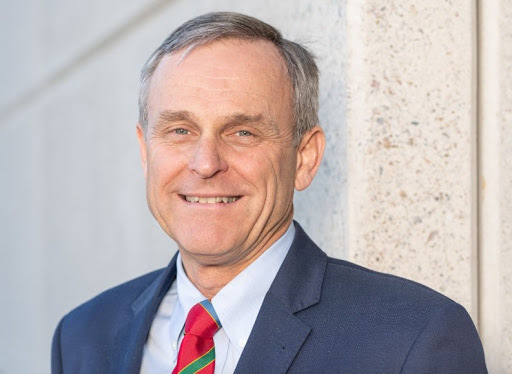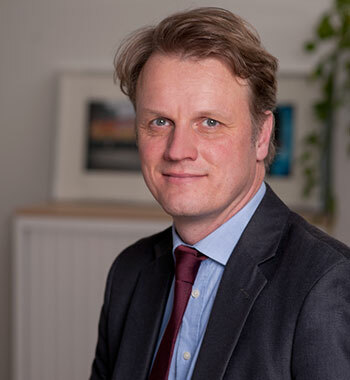
Donald Coles

Michael Keller
Nyon, Switzerland (July 5, 2021) – International Seed Federation (ISF) President Donald Coles says seed is a vital part of life around the world.
Therefore, he says, the work of the global seed sector is critical, particularly as mounting challenges need to be overcome.
As the ISF Virtual Congress 2021 began Monday, Coles says the seed sector has shown its resiliency and overcome many of the recent challenges it has faced, especially the COVID-19 pandemic. However, he says more work needs to be done as challenges remain, including climate change.
“We are all well equipped to take on this challenge,” says Coles, who was speaking from Victoria, Australia. “Throughout the pandemic people in the seed sector have improvised in order to keep seed moving and food flowing. During lockdown, people have really had to think about the basics of life, in particular how much food they need to survive. Many have even established gardens for the first time. Demand for vegetable seeds has increased, but transport slowed down. Despite this, very few shortages occurred.”
A Journey to Resilience
ISF Secretary General Michael Keller echoed some of Coles’ comments while explaining the theme of the meeting is intended to detail that “our journey to resilience start with seed.”
“Resilience means our capacity and adaptability to withstand difficult situations in a sustainable way,” Keller says. “COVID-19 could have had a serious impact on food supply around the world. In joint work, by cooperating together, we have overcome the situation. We still notice that 200 million more people have hunger today than a year ago.”
Keller says seed is the most important input in food production.
As it looks toward the future, Keller says ISF is taking part in discussions surrounding the upcoming U.N. Food Systems Summit. ISF is looking to increase the involvement of the seed sector in the dialogue with so many critical issues involved, he says.
“It is time now to move ahead,” Keller says. “We need to set up a dialogue based on data. We need to decide now to be ready tomorrow.”
U.N. Food Systems Summit
The agenda for the U.N. Food Systems Summit is much broader than just climate, as it involves all actors in the value chain, including those interested in nature, health, and equity, says Peter Bakker, CEO – World Business Council for Sustainable Development (WBCSD) and Chair of the Private Sector Guidance Group of the U.N. Food Systems Summit. The U.N. has set sustainable development goals, he notes.
“Without transforming the food system, we have no hope of achieving the sustainable development goals,” Bakker says.
The upcoming meetings have been described as a summit of the people with all stakeholders, both public and private, expected to be present, Bakker says. The goal is for it to be a summit of action, he adds.
Discussions thus far have focused on identifying mutually agreed upon objectives for the food system transformation, Bakker says.
“It’s not enough anymore to do more business as usual to sell a few more seeds or whatever it is people try to sell,” Bakker says. “We need to transform systems to achieve the goals. There will be winners and losers. If we all focus on innovation opportunities to emerge then we will build successful future businesses. It then becomes a conversation about competitive positioning of companies and the sector. That way we can hopefully mobilize as many companies and associations as possible.”
The U.N. Food System Summit was the focus of a later panel discussion Monday featuring Erik Fyrwald, CEO, Syngenta; Franck Berger, CEO, Limagrain Vegetable Seeds; Mary Ann Sayoc, Public Affairs Lead, East-West Seed; and Ruramiso Mashumba, Farmer- Entrepreneur, World Farmers Organization.
The panel discussed the role of improved seed varieties and how to build the conditions to create crop diversification; the engagement of the seed sector through the Declaration; and a review of the current state of farmers’ access to innovation and technology and the opportunities for public-private collaboration.
Upcoming Schedule
The ISF Virtual Congress continues Tuesday with panel discussions about “International Seed Trade and COVID-19: Key learnings for the future” along with another one about “Addressing emerging plant disease to achieve resilient food systems.”
Seed Today is a media partner for the event with Editor Chris Lusvardi interviewing ISF Regulatory Affairs Manager Szabolcs Ruthner. The discussion, which will be about gene editing regulation and a global policy update, can be seen from 12-12:30 p.m. CEST (5-5:30 a.m. CT) Wednesday, July 7.
The Virtual Congress concludes with later sessions Wednesday including a discussion about the future of the seed business and our contribution to resilience.
More information can be found at congress.worldseed.org. Watch all the presentations on Channel World Seed.
Written by Chris Lusvardi, Seed Today editor
Related Article
- Global Seed Sector Takes Another Step In The Journey To Resilience 7/12
- International Seed Federation (ISF) Provides Information About Gene Editing And A Global Policy Update 7/07
- Panel During The ISF Virtual Congress Discusses What The Seed Industry Has Learned From The COVID-19 Pandemic 7/06
- Speakers Announced For The International Seed Federation Virtual Congress 2021, July 5-7
